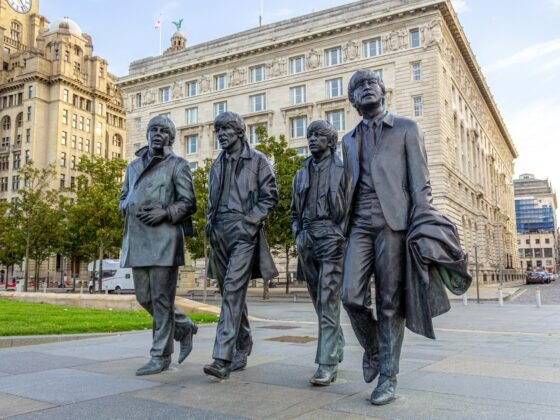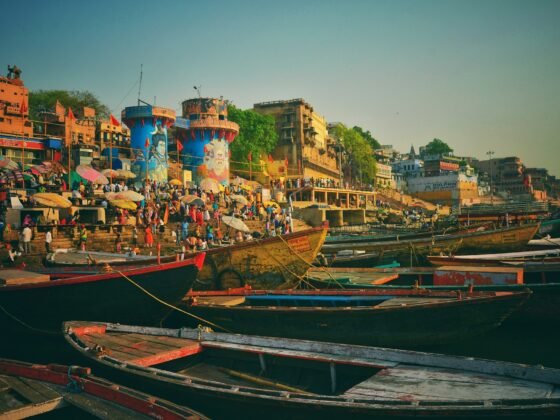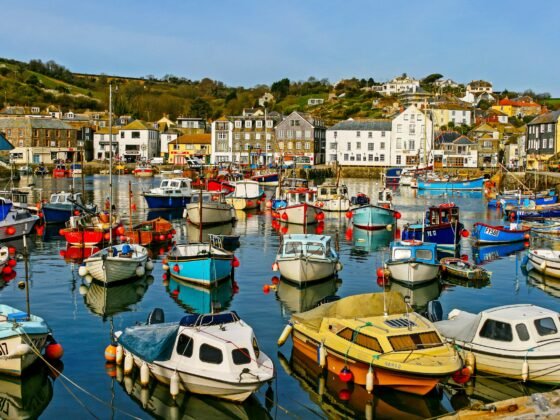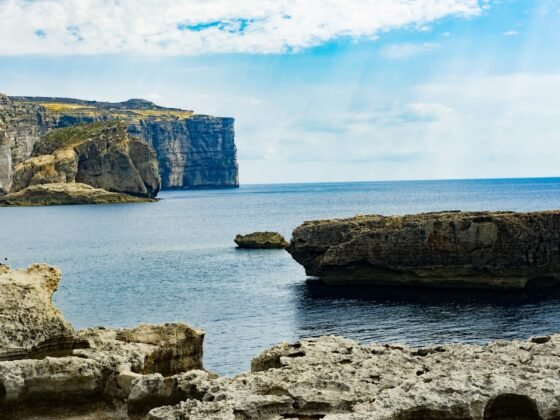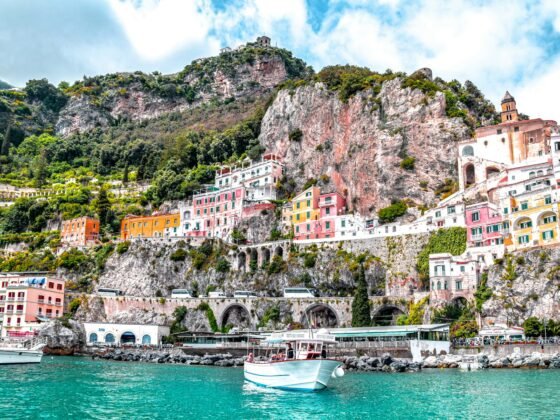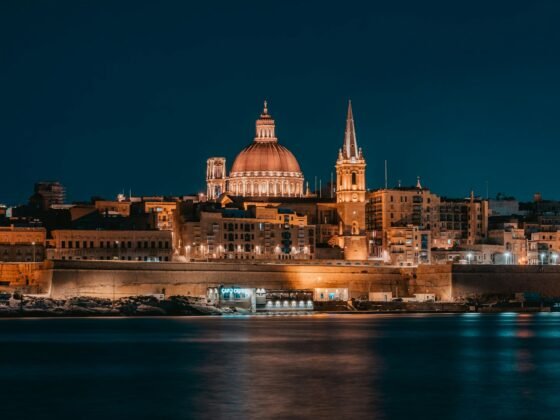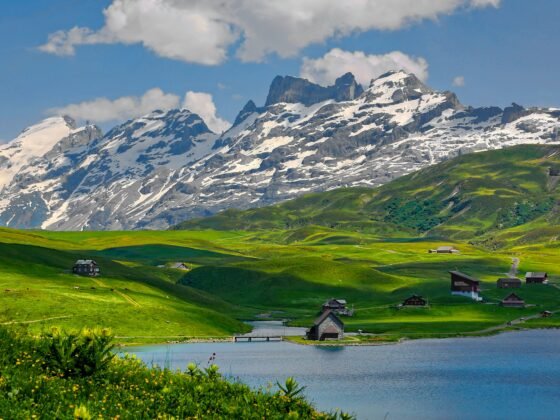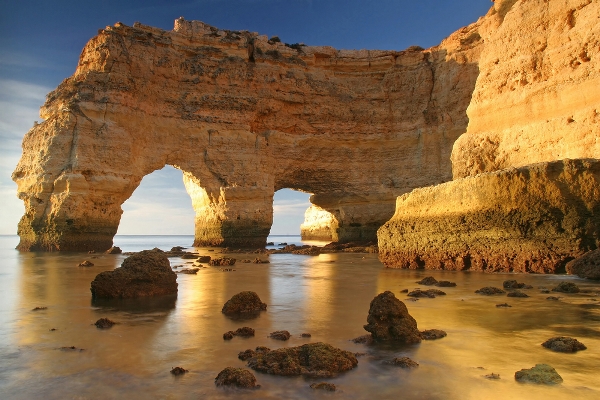
According to the National Statistical Institute of Portugal (INE), in 2019, “the number of non-resident tourists arriving in Portugal should have reached 24.6 million, corresponding to a growth of 7.9% compared to the previous year”. The Portuguese Immigration and Borders Service’s (SEF) indicate that around 35.000 registered UK residents live in Portugal, mostly gathered in Lisbon, Algarve, and Porto areas. The French also make up around 23.500 of the total population as well. They are attracted to Portugal due to several reasons. The low cost of living, favorable tax treatments and a year-long mild climate is among them. Unlike some European countries, big outrages do not occur in Portugal. So, this makes the country a safe haven to enjoy your stay there.
What does Portugal offer to travelers?
First of all, it has a mild climate which lasts for a whole year. This is why you can visit Portugal at any time you want. In addition to its climate, it has great coastlines and beaches throughout the country. Tourists and non-residents especially prefer to visit the Algarve region, Faro, Madeira, and more others.
The cost of living is also quite affordable in Portugal, compared to other European countries. So, you don’t need to worry about the food and accommodation prices in Portugal.
The country also ranks as the 3rd most peaceful country in the world, according to the 2020 Global Peace Index. This is another factor for foreigners to choose the country. In fact, even people from other popular European countries visit Portugal. INE suggests that “Most of the tourists keep coming from the United Kingdom, with a total of 9.38 million people, rising 1.5% compared to 2018. Following the Germans with 5.88 million guests and the Spanish with 5.22 million. In terms of growth, the highlight goes to the North American (29.2%), Canadian (27.6%), and Irish (26%) markets.” Also, “arrivals of French tourists (share of 12.6%) grew by 2.1%.”
People from non-EU countries are also attracted to this magnificent place. One of the important reasons is the Golden Visa program Portugal offers. The program is basically a residency by investment program. It is only available for non-EU citizens, though. So, wealthy non-EU citizens invest in the country and benefit from the rights Portugal offers to them. This is a great incentive for people who wish to enjoy the freedom of mobility within the European region. Investments can be made through the purchase of a property or capital transfer to certain authorities in Portugal. After the process is complete, they obtain temporary residency in Portugal, along with their family. If they fulfill the minimum stay requirement, they may eventually obtain a permanent residency and citizenship of the EU as well. In this case, they can travel visa-free to 153 countries. What is more, you can benefit from the tax regulations, if you shift your tax residency to Portugal. At this point, Portugal has such a great program called Non-Habitual Residency (NHR). This gives you many tax exemptions on your foreign income. Furthermore, you benefit from this program for a total of ten years.
So, the country manages to attract foreigners in any way you can imagine. Now, let’s look at some travel suggestions for your Portugal visit.
Tips for your travel in Portugal
Transportation
It is advisable to use public transportation to get around easily inside the cities. Especially if you are visiting Lisbon and Porto, due to the traffic and parking problems. Both Lisbon and Porto have underground metro systems, buses, trams, and funiculars. You can use them with your passcards. Each metro tickets for buses and metros range betwen €1 and €5. If you want to stay longer, you can consider a monthly pass, which is around €40.
You can also search for a tourist card. Some places in Portugal offer this as well. They include the Lisbon Card and Porto Card. They offer free or discounted public transport and discounts on most types of usual holiday expenditures.
Taxis and Uber are widely available in the country as well. Typically, an average taxi fee starts at around €3 and for each kilometer, increases at a rate of €0.50.
If you want to live or travel outside of the cities, you may need a car, though. Renting a car is another option. You can rent it daily for under €30. You should also consider the toll roads required at major highways. For example, driving between Porto and Lisbon costs around €30 in tolls.
Activities
There are a variety of activities you can enjoy in Portugal. Furthermore, the prices are quite low compared to some other European conutries. You can visit museums, swim in great beaches, taste wine, do golfing, and many others. Usually, smaller museums, churches and castles are free. For other museums and castles, the fee is between €5 and €10 per person, plus, children are free. Also, some museums and monuments offer free admission on Sunday mornings. Or, they offer discounts with a local tourist card. Most of them are closed on Mondays.
In the Algarve, you can enjoy exciting watersports. Boat tours are around €40 per person for a 2+ hour trip. Jet skiing or scuba diving are other options. They will cost around €100. Wakeboarding, water-sofa riding, and similar other leisure activities cost around €20. Especially in the Algarve region, you can explore that golfing is quite popular, too. If you prefer more tranquil places, you can consider the towns of Sagres, Tavira, and Aljezur.
For wine-tasting, Northern Portugal is the best location. They also offer a multi-vineyard wine tour. Often, they offer a cruise on the Douro River. This costs between €90 and €120.
If you go to the south coast of the country, you will experience the Lagos area which basks in the sun in the Algarve. Thousands of visitors prefer this place each year. It has great beaches as well as magical rock formations, and sandstone cliffs. In addition to this, Lagos holds the Museu Municipal and its adjoining Igreja de Santo António, which are worth seeing. To watch sunsets, you should definitely go to Ponta da Piedade.
Madeira is also a popular destination for hiking. Not to mention its islands for enjoying the sand and the beach.
Porto, on the other hand, is the second-largest city in Portugal. It is famous for its Port wine with its stretch of vineyards. You will also see the medieval palaces and cathedrals. Also, people rate Porto’s cuisine as the best in the country.
For surfing, you can consider Ericeira as an option. It is one of the main attractions in the country. Being a small fishing village, it is popular with its catching waves. You can arrive there easily from Lisbon as well. The restaurants in this village are also among the top destinations for fresh and delicious Portuguese seafood.
Coimbra holds many Roman and medieval ruins. Furthermore, it once served as the capital of Portugal. The University of Coimbra is one of the oldest institutions in the world. It also attracts many tourists. Coimbra is also famous for the library, Biblioteca Joanina, which is a Baroque-styled building. Many times, it has been ranked as one of the most beautiful libraries in the world.
Eating in a Restaurant
Eating outside is also quite affordable in Portugal. At an inexpensive restaurant, expect to pay an amount of €8. At a fast-food chain, it is €6 on average. A meal for two at a mid-range restaurant cost around €30. However, be careful about starters like olives, bread, cheese, and cold meats. You need to pay for them as well if they are not part of a set menu.



